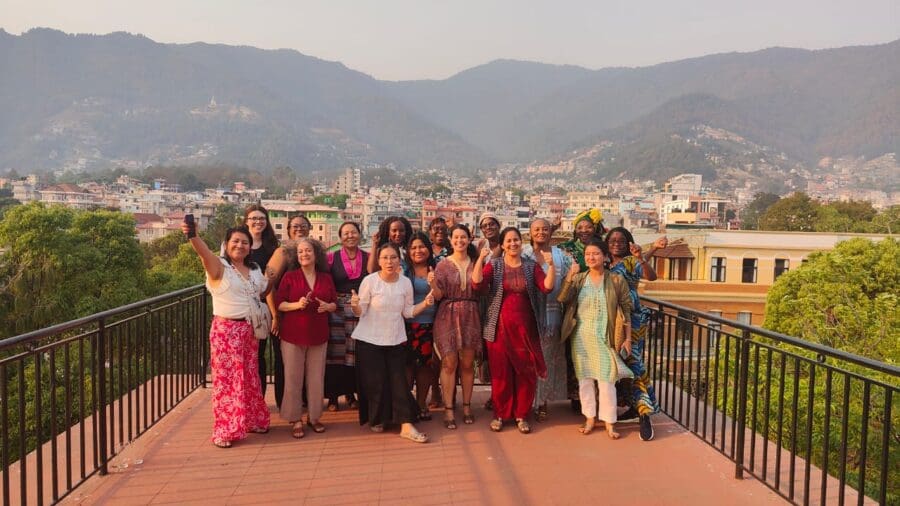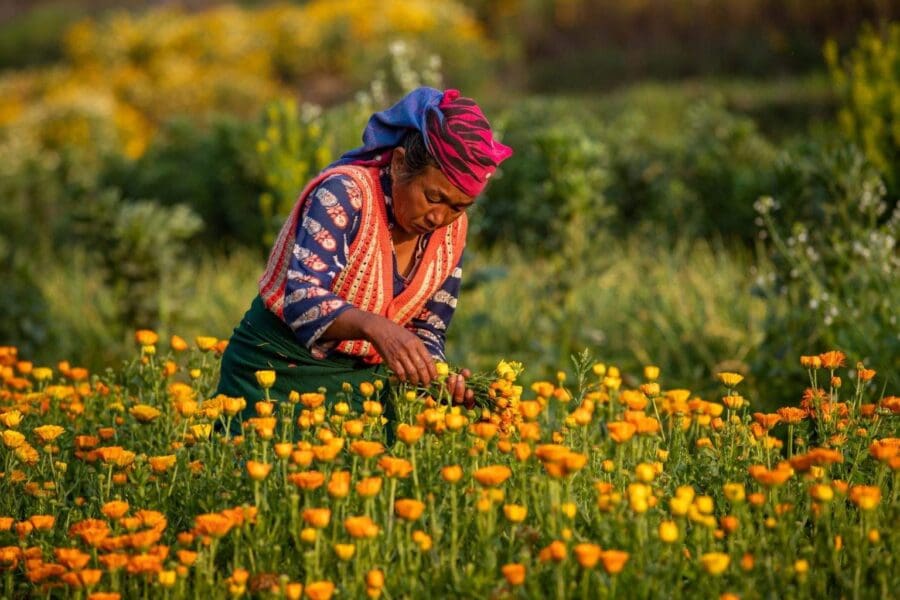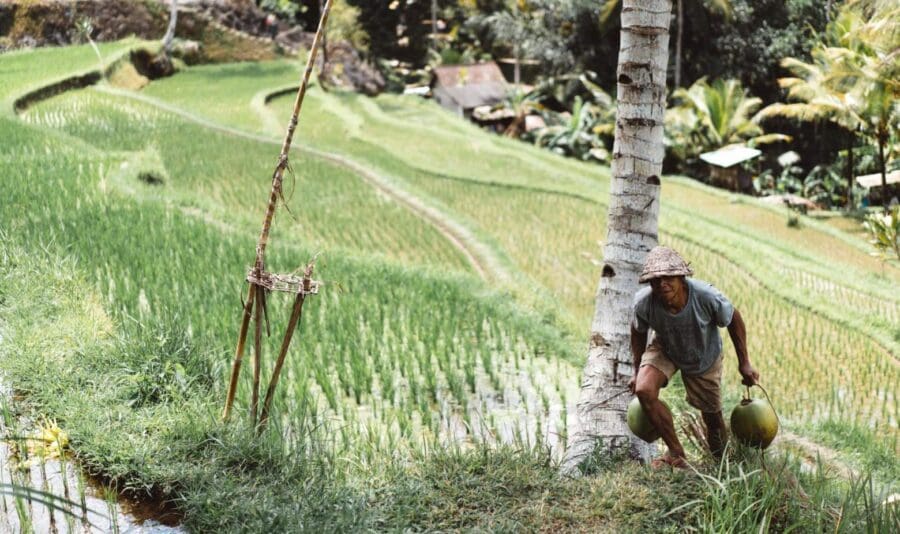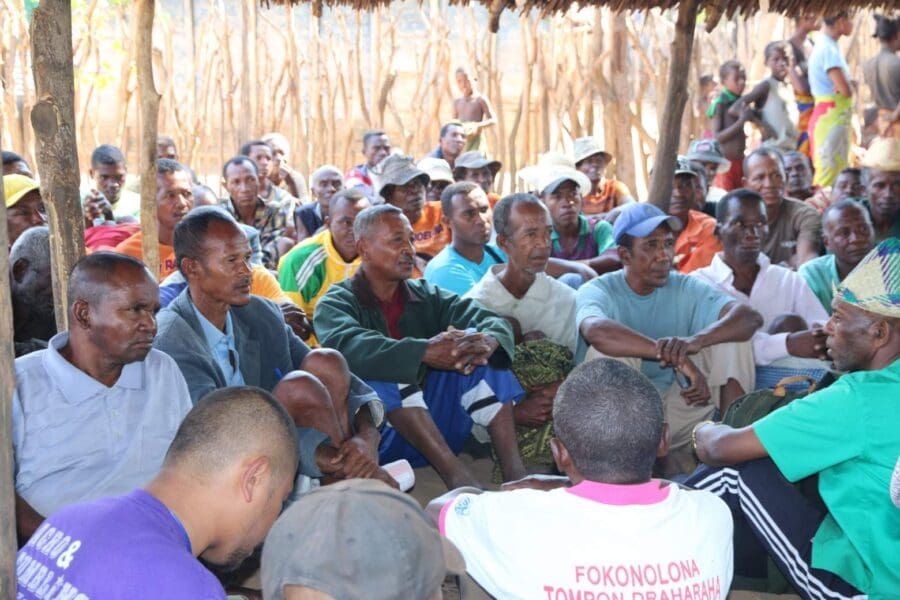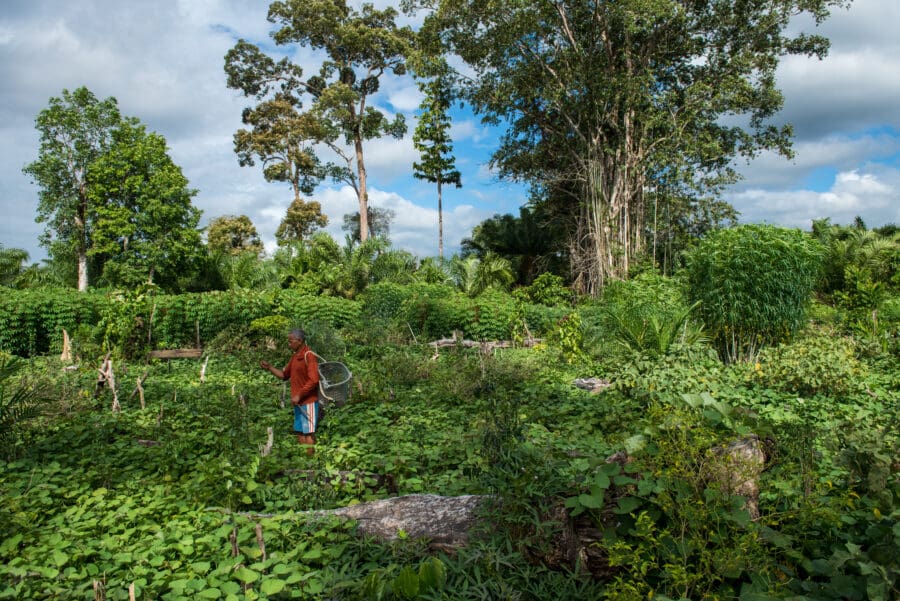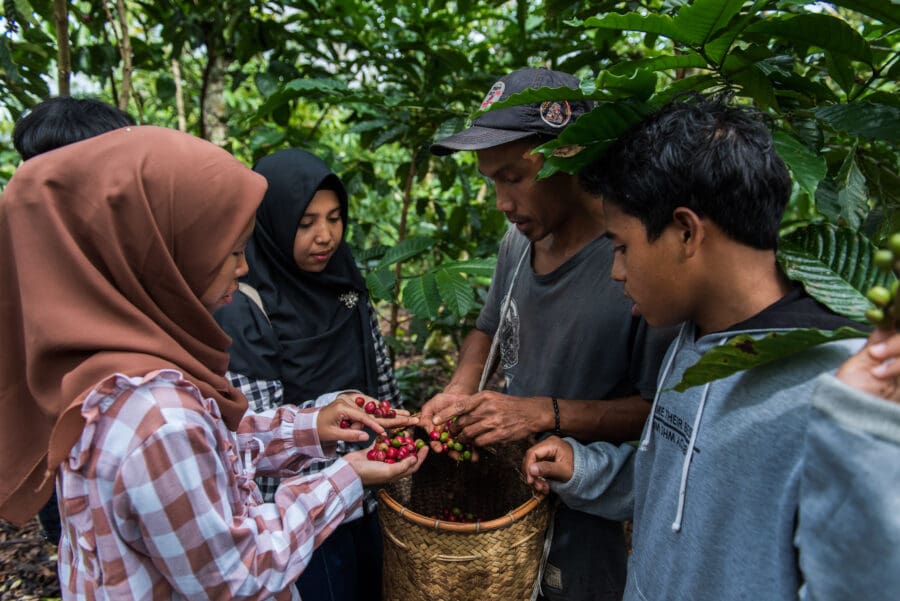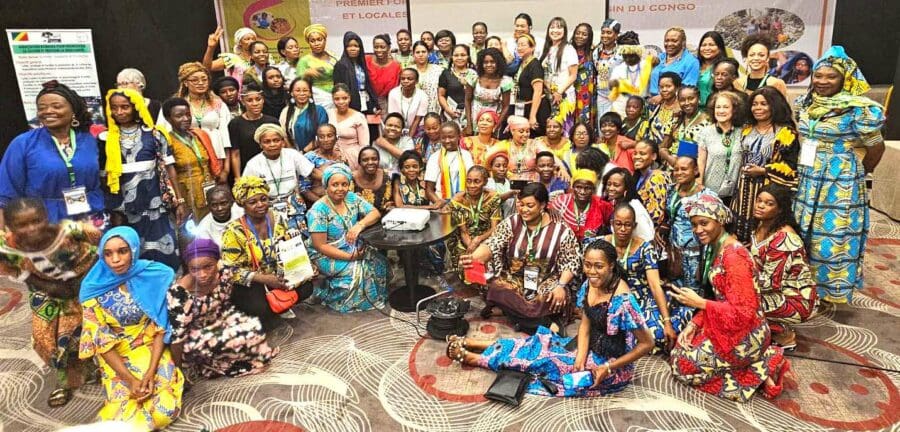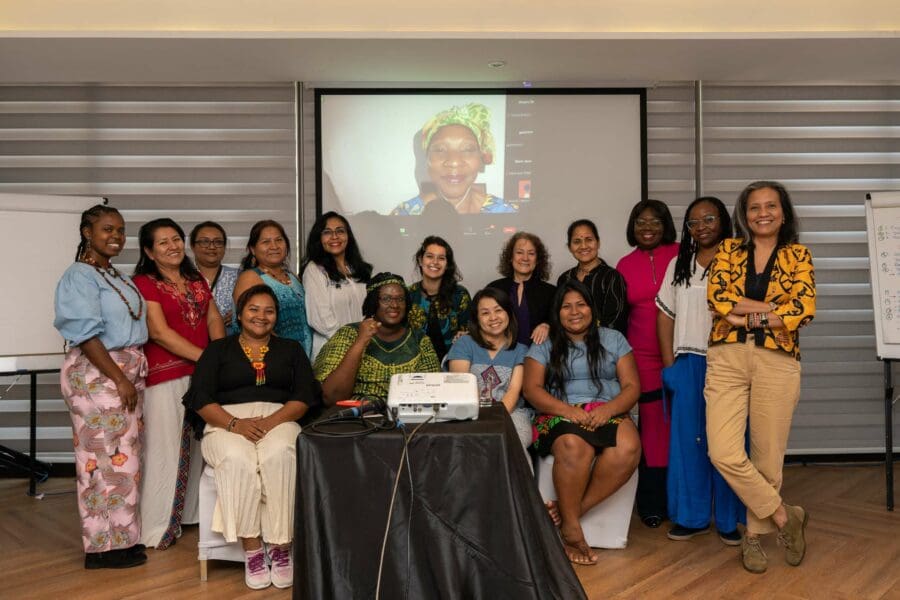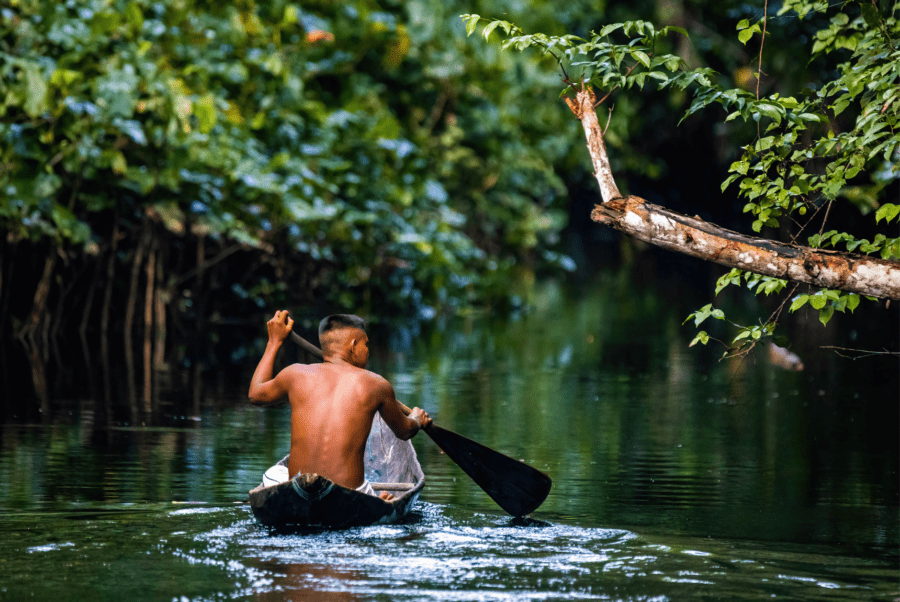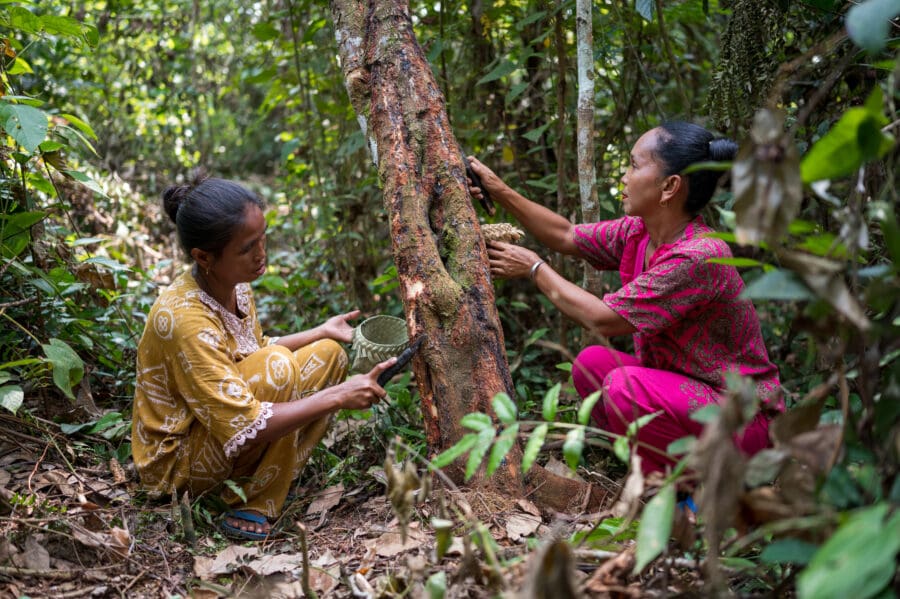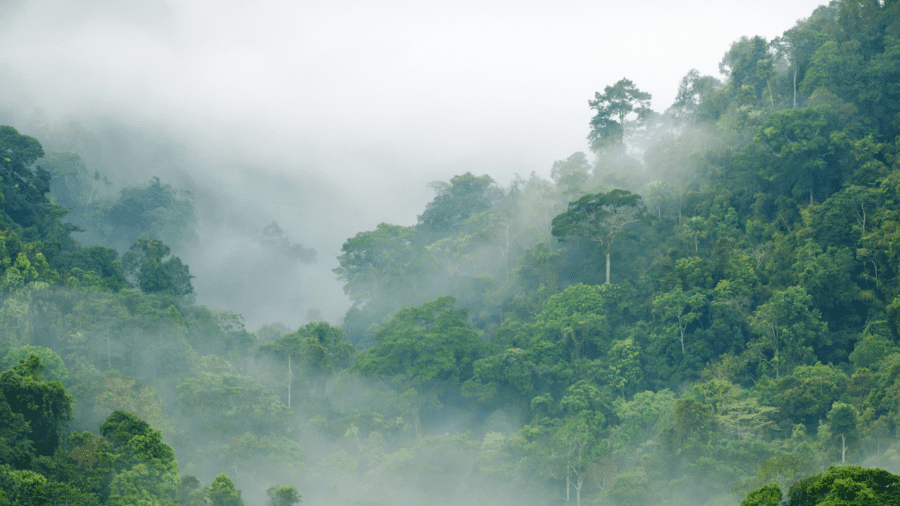The Women in Global South Alliance (WiGSA) hosted its second strategic meeting in Kathmandu, Nepal from April 30–May 2, 2024. Armed with a feeling of sisterhood and common purpose, women leaders from 11 countries across Asia, Africa, and Latin America overcame jet lag to meet in person to discuss strategies on how best to support the women and girls they represent.
After a five-year hiatus, the World Bank held its Land Conference on May 13–17 in Washington, D.C., bringing together over 1,000 practitioners, donors, advocates, civil society representatives, and government officials. The takeaway was clear: The case for land tenure security as a prerequisite for climate, development, and biodiversity goals has now firmly been made, but many of the same challenges persist in advancing rights-based agendas.
This platform helps coalition members, donors, and allies gain a better understanding of RRI’s global network and documents how each member contributes to the collective mission of advancing local peoples' land, territory, freshwater, and resource rights.
Rights and Resources Initiative and Rainforest Foundation Norway are thrilled to announce the launch of the Path to Scale dashboard, a new open-source online tool that gives easy access to donor funding data for Indigenous Peoples’, Afro-descendant Peoples’, and local communities’ tenure and forest guardianship.
For the first time, Madagascar's traditional communities, the FOKONOLONA, are being considered in the construction of the country's land reform. Find out how this breakthrough was made possible.
The recent release of the Second Edition of Who Owns the World’s Land? offers an important moment to take stock of the global state of Indigenous, Afro-descendant, and local community land rights recognition. The data in the report covers 73 countries, which cumulatively comprise 85% of the world's land area, and gives a comprehensive snapshot of the global landscape for community land rights at a critical moment for people and the planet. Here are five of the biggest takeaways from the report.
For more than 10 years, the LandWise Law Library has grown into an essential resource on family, land, and natural resource rights under the care of Landesa and Resource Equity. As Resource Equity closes its doors, RRI is thrilled to announce that it will carry the LandWise Law Library on through its next chapter.
In the lead-up to COP28, amid a growing push to restore degraded and deforested lands as natural climate solution, a new peer-reviewed study shows better outcomes when Indigenous Peoples and local communities are in charge.
More than 300 representatives of Indigenous Peoples, local communities, governments, donors, and NGOs from 47 African countries gathered last month in Namibia to collectively develop a strategy for community-led and people-centered conservation in Africa.
This October, the Democratic Republic of the Congo (DRC)’s National Assembly passed the country’s first-ever legislation on land-use planning. The historic bill’s passage is a result of years-long advocacy by civil society organizations led by RRI collaborator Centre for Innovative Technologies and Sustainable Development.
More than 100 participants from 11 countries gathered in Arusha, Tanzania, this week for the 4th Conference of National Land Institutions in Africa, working to secure community land rights.
From September 12–14, 2023, the African Land Institutions Network for Community Rights (ALIN) will hold its 4th regional conference in Arusha, Tanzania. Land institutions from over a dozen countries will share lived experiences, opportunities, and challenges to further the community land rights agenda in Africa, with Indigenous and local community women, youth, and pastoralists taking center stage.
According to a new report by RRI, existing national laws have the potential to recognize Indigenous Peoples’, Afro-descendant Peoples’, and local communities’ rights to own or control more than 260 million hectares (Mha) of land across the world—an area twice the size of Peru.
A new resource seeks to support companies and investors in understanding the shared value community monitoring could add to their operations and investments, and outlines principles to help them build productive partnerships with communities to secure their land tenure and improve compliance with environmental and social standards and commitments.
Women leaders from Africa, Asia, and North and South America gather in Brazzaville to strengthen the global solidarity movement for women-led initiatives to protect biodiversity and build climate resilience.
Members of the new network agree to create more documentation on land rights and governance processes for Indigenous, Afro-descendant, and local community women; call for strengthening advocacy capacity.
Indigenous and community leaders from North America and the global South come together to build relations and strengthen a global solidarity movement around Indigenous and community-led responses to the global biodiversity and climate crises.
On December 6, RRI, the Conservation through Reconciliation Partnership (CRP), and the ICCA Consortium—in partnership with the Canadian Research Chair in Human Rights, Health, and the Environment, Montreal International and the Christensen Fund—will co-host a pre-COP15 dialogue on Indigenous and community leadership in conservation.
This keynote address was shared in person on July 21, 2022 at the IUCN Africa Protected Areas Congress in Kigali, Rwanda. Patrick calls on governments to leverage the cultural diversity of Africa to craft new conservation models that legally recognize and secure the tenure rights of Indigenous Peoples and local communities as a just and viable solution to the global biodiversity crisis.
President Félix Antoine Tshisekedi of the Democratic Republic of the Congo (DRC) has signed a historic bill to protect and promote the rights of Indigenous Pygmy Peoples into law. This is the first-ever legislation in the country to recognize and safeguard the specific rights of Indigenous Peoples.
November 14 marks Gender Day and Water Day at CoP27 in Sharm-El-Sheikh, Egypt. We must take a moment to recognize how Indigenous, Afro-descendant, and local community women and girls are leaders in climate change mitigation and adaptation and integral to attaining the UN's 2030 Sustainable Development Agenda.
On November 11 at CoP27, 41 grassroots women’s organizations from Asia, Africa, and Latin America launched a new advocacy network called the Women in Global South Alliance for Tenure and Climate.
RRI is excited to announce the launch of its new online Tenure Tool. This platform, hosted on RRI’s website, will give rightsholders, researchers, activists, policymakers, and the public free and easy access to qualitative and quantitative data on the forest tenure rights of Indigenous Peoples, Afro-descendant Peoples, local communities, and the women within those communities.
In this new report, researchers compiled data on this funding stream and assessed the grants along different dimensions of “Fit for Purpose” criteria—determining whether the funding achieved its intended goals or was compromised in delivery and effectiveness.

